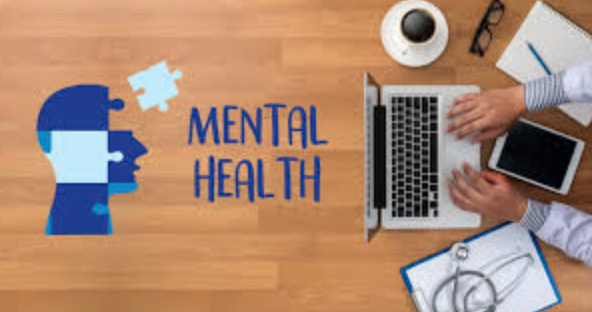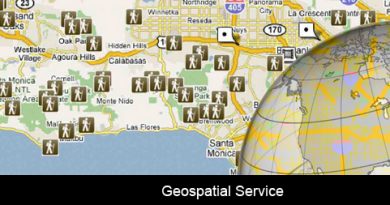Mental Wellbeing in the Workplace
The state of South Africa’s mental well-being is a cause for concern
In Aon’s 2024 Global Medical Trend Rates Report, mental health is listed as a major contributor to morbidity, disability, injury and premature mortality; also increasing the risk of other health conditions. The state of South Africa’s mental wellbeing is cause for concern. The world has witnessed several major events that have also had widespread impacts on people’s mental health. Events such as the COVID-19 pandemic, natural disasters, economic uncertainties, social unrest and warfare have heightened stress levels and contributed to an increased focus on mental well-being.
South Africans are distressed and struggling with their mental health:
In Sapien Labs’ Mental State of the World 2022 report, South Africa was ranked as the country with the highest percentage (35.8%) of its population that are distressed and struggling with mental health.
Another prominent trend highlighted in the Sapien Labs report is the declining mental well-being of each successively younger generation. This is reflected in the Western Cape Government’s report on anxiety, depression and adolescent suicide which found that 9% of all teenage deaths are due to suicide.
According to the World Health Organisation (WHO) more than 700 000 people die by suicide every year, with South Africa rated as the country with the ninth highest suicide rate in the world at 23.5 per 100k, with suicide alarmingly being the fourth leading cause of death among 15 – 19-year-olds.
A WITS University study found that a quarter (25.7%) of South Africans are depressed with only a quarter of these affected individuals seeking assistance.
According to Jacqui Nel, business unit head of healthcare at Aon South Africa, depression is likely to be the world’s leading burden of disease by the year 2030, if not sooner. “It is easy to measure an individual’s weight, Body Mass Index (BMI), glucose and cholesterol levels, but it is much harder to measure what is going on in a person’s mind. The top challenge that human resource professionals are concerned with is keeping the workforce engaged and productive in the face of ongoing retrenchments, the spiralling cost of living, load shedding and the fact that 44% of South Africans have impaired credit records. All these factors are converging to create enormous contributory pressures when it comes to anxiety levels experienced by employees,” says Jacqui.
One of the leading trends in the mental well-being of employees is burnout, which places employees at risk of developing depression. It was classified as an occupational phenomenon in 2019 by the World Health Organisation (WHO) with its occurrence rate increasing on an annual basis, and it has only escalated since the onset of the pandemic and the radical changes to work models since then. “Employees that are burnt out feel exhausted, distance themselves from their colleagues and their job and show a reduction in professional efficacy,” Jacqui explains.
Finding a sustainable work-life balance model
These factors are clear indicators that there is something radically amiss in our work-life balance, and we need to do better as a society and employers in embracing a more sustainable work-life model that is cognisant of the forces that are at play in the workforce environment. “It starts by building resilience, agility and a sense of belonging at an individual and organisational level, and most of all, better support structures,” Jacqui explains.
Workforce Resilience
Workforce resilience describes a person’s fundamental sense of security at work, a strong sense of belonging with the employer and the adaptability and motivation they need to reach their full potential. “Workforce resilience matters because businesses that put their people first are more likely to thrive. By creating a workplace environment that provides security, motivation and belonging, employees and colleagues are better able to weather and process the fiercest of storms and pressures,” Jacqui explains.
Workforce Agility
Workforce agility describes a workforce that thrives on and embraces change rather than being threatened by it, a workforce that can develop future skills at speed and naturally pivots to stand out from the competition – all the while balancing investment and people risk with agility, creating value for the employer and the customer, alike.
“By investing in impactful Employee Assistance Programmes (EAP), employers empower their employees to better measure their progress and manage risk, enabling a diverse, inclusive and agile workforce. Workforce agility is the difference between merely surviving and thriving,” says Jacqui.
“It may even extend beyond an EAP, with organisations implementing programmes that are specific to the organisation’s challenges. Insights that are underscored by data and analytics, will be able to identify employee trends and concerns, enabling employers to wisely spend money where it is most required within the wellness of employees,” she adds.
Belonging
Belonging describes a connection to a community of peers and the support that each individual feels in relation to their working environment. “It is important because it enables a positive working life experience and underpins personal and professional growth, providing a voice and an opportunity to use it and be heard, regardless of role or rank. All the while, supporting wellbeing whilst driving diversity and innovation,” Jacqui explains.
“Fostering a sense of belonging in an employee starts by assessing how well the personality traits of a possible candidate align with the cultural fit of the organisation during the recruitment phase. It also extends to how well employees are supported during their time in the organisation, allowing them to naturally become agents of change and role models for the organisation’s culture by living the company ethos and way of operating to inspire adoption throughout,” Jacqui explains.
At the heart of this entire process, is the implementation of a well-rounded Employee Assistance Programmes (EAP) that is designed to support employees in dealing with personal and work-related stressors that may affect their well-being, mental health and productivity. This could include:
Confidential counselling sessions.
Assessments of an employee’s situation and referral to the correct counselling and support.
Crisis intervention for employees who are dealing with trauma such as bereavement, have been victims of violent crime or gender-based violence.
Offering work-life services that could range from finding childcare to legal assistance or financial planning.
Offering educational workshops and seminars on aspects such as personal finance through to health and wellbeing.
Wellness programmes that promote healthy habits and stress reduction and management techniques.
Consultation for managers and supervisors.
“There has been a significant increase in awareness and understanding of mental health issues as efforts by mental health advocates, employer groups and individuals have contributed to destigmatising mental health. This increased awareness has led to more open conversations about mental health in various sectors of society and it is here where Employee Assistance Programmes (EAP) play a crucial role in supporting employers and opening the doors for candid conversations and getting the needed help and support. The services of a trusted and skilled advisor are key in helping organisations develop and operate an EAP that is fit for your business and your people and their unique circumstances. ”
“While there is a cost involved that is carried by the business, the results far outweigh the investment. It’s about providing employees and management with the means to weather the storms of an increasingly complex world of work, find a balance in their personal lives and come out on the other side with resilient and agile people who have a strong sense of belonging and purpose. This is about supporting employees to manage stress, improve productivity, and enhance their overall quality of lif




